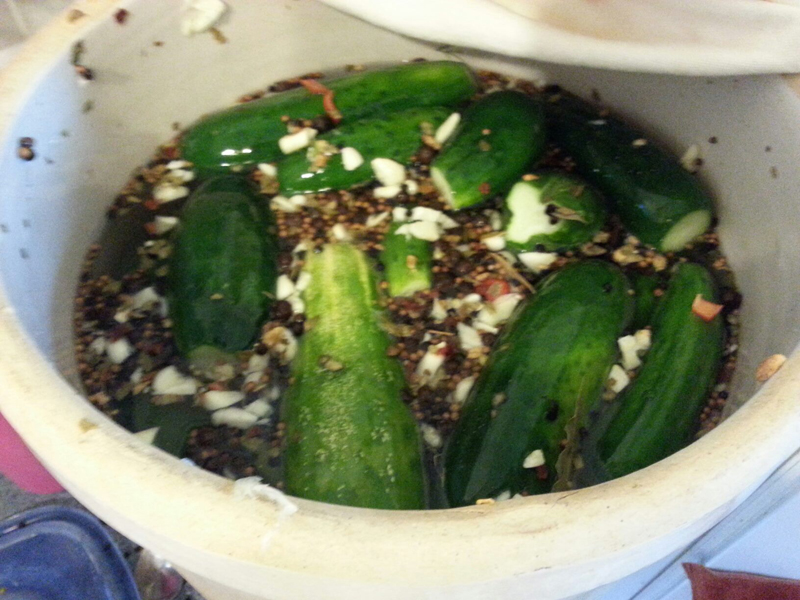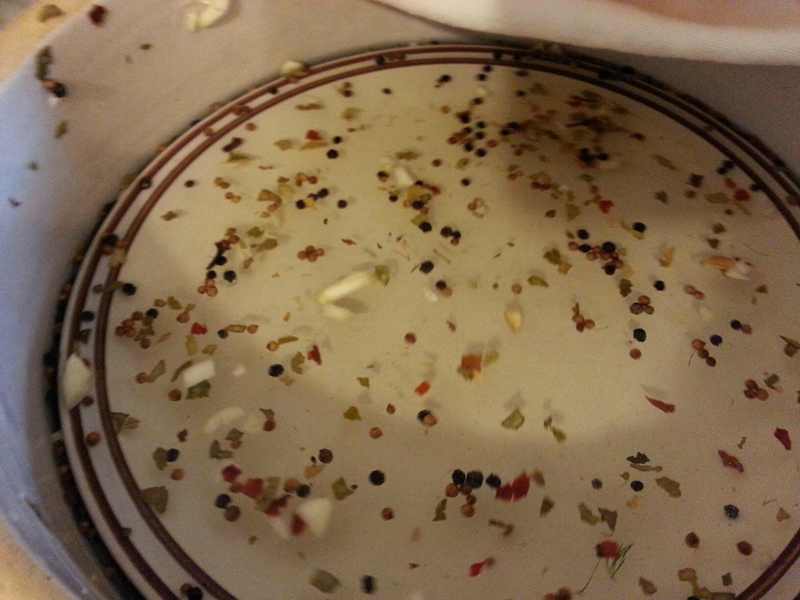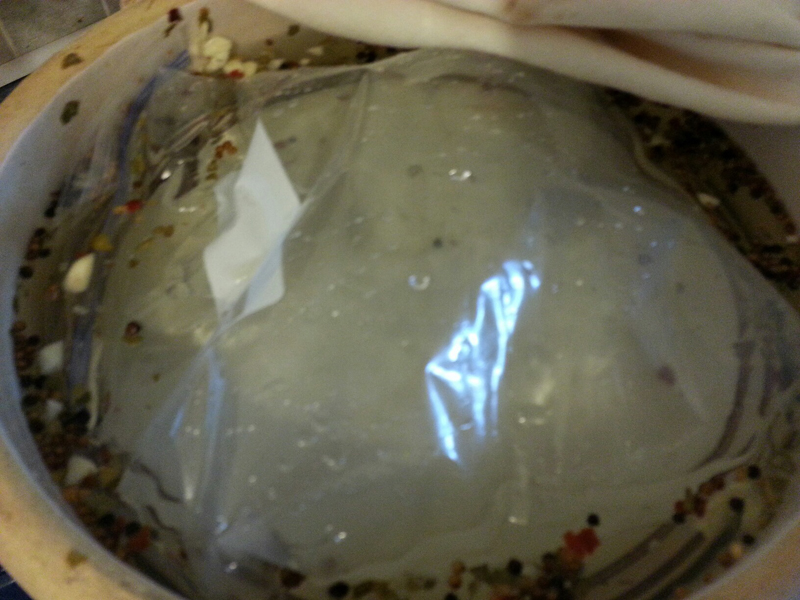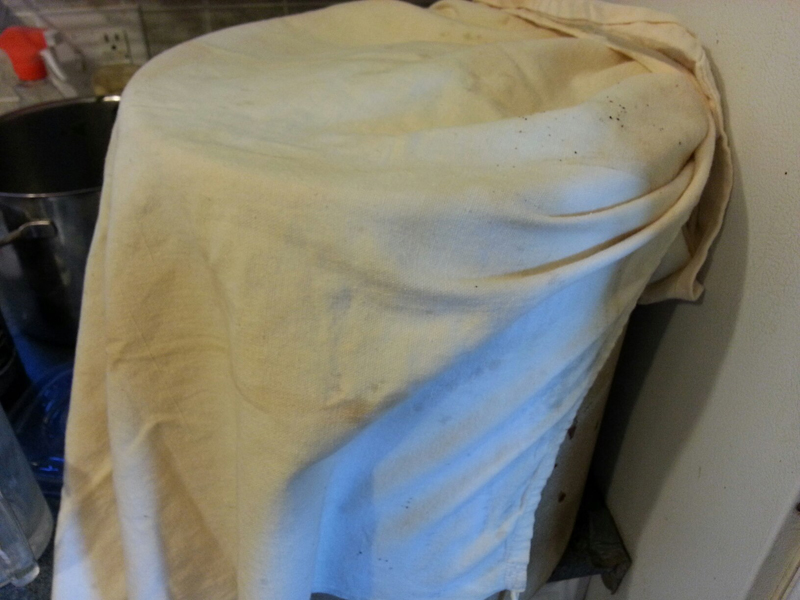I love fermented foods. Beer, mead and cider, of course, but also cheese, sauerkraut, kimchi, yogurt, pickles and I don't know what-all. Even pepperoni (not on the menu for me, I love the stuff but after a heart attack at 32 and bypass surgery at 42, red meat sausage is out of bounds) is traditionally fermented.
I say traditionally because most pepperoni these days is cured by injecting junk that will cure it. Same thing for most pickles you can buy, they soak the cukes in vinegar and let that do its preservative magic. For the record, I do not have a problem with that. Claussen dills are my favorite store-bought pickle hands down, and they're a vinegar process pickle to be sure. And I suppose that is still the magic of fermentation, acetic acid created by one fermentation process then added to cucumbers.
But for this I wanted to try my hand at old-school pickling. I could have trusted that the cukes had their own bacteria provided in their skins, but being a sucker for culture I used about a cup of brine from a jar of Bubbies as a 'mother' or starter.
I bought twelve dollars worth of pickling cukes from a farmer at City Market, added a few from our own garden and put them in my grandmother's pickle crock. My bypass surgery has me on a ten pound weight limit so I had to use my daughter as a draft horse to carry the bag of cukes I bought at the farmer's market and I had to press-gang my wife into putting the crock on the counter in the kitchen and then moving it to a corner to allow the fermentation magic to begin.
A recipe? Here's what I have in my trusty kitchen notebook:
1.5 oz. McCormick Pickling Spice
6 Grape Leaves (supposed to provide tannin that will keep the pickles crisp)
2 handfuls of dill
2 jalapeños, minced
2 Thai chilis whole
5 bay leaves
1/2 cup black peppercorns
3 garlic cloves, minced
1/2 cup brine from Bubbies pickles
2-1/2 gallons water, carbon filtered to remove chlorine
1-3/4 cup pickling salt
Place all in pickling crock, cover with plate. My family crock turns out to be a perfect fit for a stoneware plate in my cabinet, some crocks come with weights that fit, but whatever you do find something to keep the cucumbers submerged. I filled a gallon zip-lock bag with brine to put on top of the plate for good measure but it was probably unnecessary. The plan is to let this ferment for three or four days at room temperature, then transfer to mason jars and refrigerate. A day later the kitchen smells like a freshly opened jar of kosher dills, so I think all is going well. Some mold may form on the surface, and that's okay, you just skim it off.





No comments:
Post a Comment